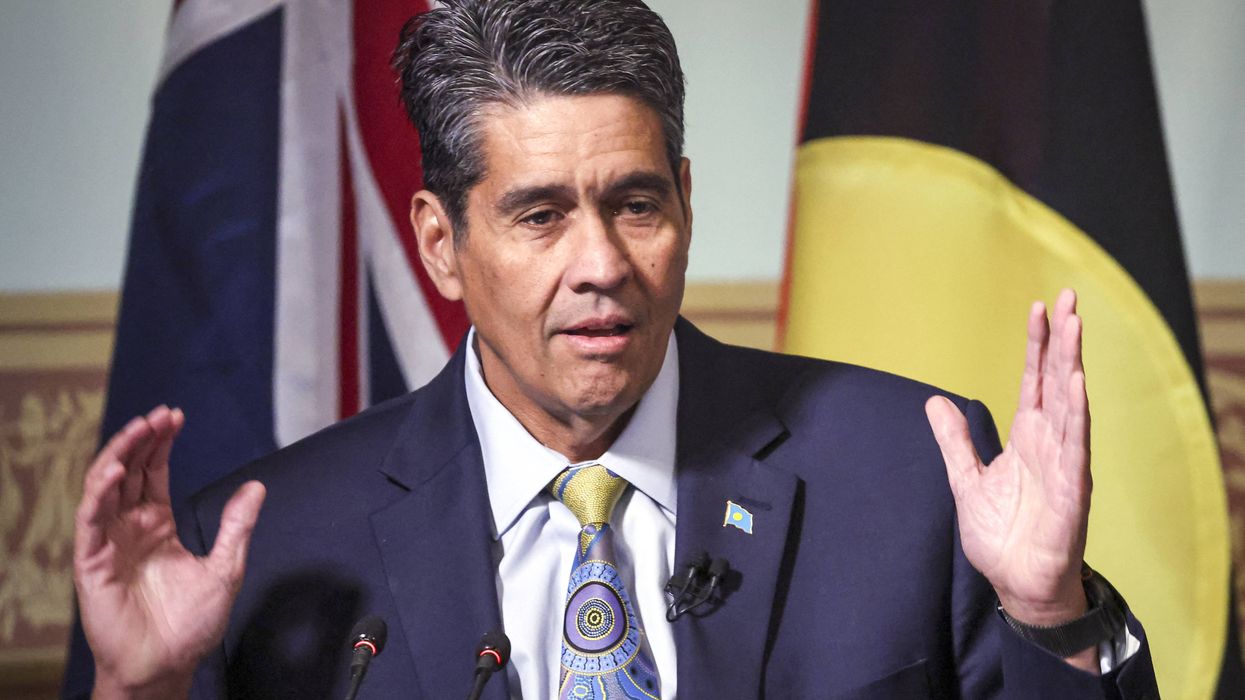June, 11 2010, 04:05pm EDT

Victory: Peace Groups Permanently Shut Down Army Experience Center in Philadelphia
Army announcement made just days before planned protest. Several large demonstrations, non-violent civil resistance and regular vigils contributed to its demise.
WASHINGTON
Franklin Mills Mall, Philadelphia, PA - A
coalition of thirty peace groups has proven triumphant in their goal of
forever shutting down the "Army Experience Center" in a suburban
shopping mall in Philadelphia. The Philadelphia Inquirer reported today
that the Army plans to permanently close the facility. https://www.philly.com/philly/news/local/96031939.html
After almost two years of glorifying the "Army experience" and
U.S. wars through video and war games, the Army Experience Center at
Franklin Mills Malls announced it will shut down on July 31, 2010. The
$13 million, 14,500 square foot Army Experience Center at Franklin Mills
Mall boasts dozens of video game computers and X-Box video game
consoles with various interactive, military-style shooting games. The
facility has sophisticated Apache helicopter and Humvee simulators that
allow teens to simulate the killing of Arabs and Afghans. Philadelphia
Inquirer reporter Rob Watson compared the Army Experience Center to "a
heavy dose of candy cigarettes."
Dozens of local and national peace groups joined the "Shut Down
the Army Experience Center" effort in January 2009, soon after the
heavily marketed Center got national press coverage. The mall was the
site of several protests of hundreds of people, with more than a dozen
arrests.
Six of those arrested were acquitted by a Philadelphia trial judge
on May 24, 2010, and prior to that at a trial last year, six arrested
were also acquitted.
Elaine Brower, one of those arrested
twice, whose son joined the Marines at age 17 and served three tours in
Afghanistan & Iraq, became a vocal opponent of the AEC. She said
today, "This is a victory for the entire peace and anti-war movement.
The team work and coalition building that was accomplished led to our
success. We were relentless in our struggle to shut this center down,
and we did it strategically. As they say, a people united will never be
defeated!"
When the center opened the Army announced it was designed as a
pilot program and would decide whether to launch them nationally. As
recently as August 2009, however, Jared Auchey, Company Commander at
Franklin Mills, was boasting of the center's "success" and claiming
others were being planned.
Former US Army SSgt. Jesse Hamilton, now a member of Iraq
Veterans Against the War, stated today, "By portraying war as a game,
the AEC glorified violence to our children and disrespected those
soldiers who gave their lives in combat. As a combat veteran, nothing
makes me happier than to know that the AEC will no longer have the
ability to corrupt our children's minds and disrespect our deceased war
heroes."
Bill Deckhart, Coordinator of the BuxMont Coalition for Peace
Action stated, "I am just elated. Being a peace activist we don't get a
lot of wins so we must savor this victory. There's still lots of work
to do and we need to help create a world that can be peaceful and does
not need to think about military recruiters and sending people to kill
or be killed for corporate profits."
The Army is planning an official
announcement today and a news conference tomorrow, before another large
demonstration planned for Saturday.
https://afterdowningstreet.org/node/53064
The coalition to Shut Down
the Army Experience Center involved BuxMont Coalition for Peace Action,
Veterans for Peace, Brandywine Peace Community, Iraq Veterans Against
the War, CODEPINK, Granny Peace Brigade, Peace Action Montgomery, Peace
Action National, NorthWest Greens, Woodstock Peace and Justice, Pax
Christi Long Island & Pennsylvania, Military Families Speak Out/NYC,
Delaware Valley Veterans For America and World Can't Wait.
CODEPINK is a women-led grassroots organization working to end U.S. wars and militarism, support peace and human rights initiatives, and redirect our tax dollars into healthcare, education, green jobs and other life-affirming programs.
(818) 275-7232LATEST NEWS
US Launches Christmas Strikes on Nigeria—the 9th Country Bombed by Trump
Trump—who calls himself "the most anti-war president in history"—has now bombed more countries than any president in history.
Dec 25, 2025
President Donald Trump—the self-described "most anti-war president in history"—has now ordered the bombing of more countries than any president in history as US forces carried out Christmas day strikes on what the White House claimed were Islamic State militants killing Christians in Nigeria.
"Tonight, at my direction as Commander in Chief, the United States launched a powerful and deadly strike against ISIS Terrorist Scum in Northwest Nigeria, who have been targeting and viciously killing, primarily, innocent Christians, at levels not seen for many years, and even Centuries!" Trump said Thursday in a post on his Truth Social network.
"I have previously warned these Terrorists that if they did not stop the slaughtering of Christians, there would be hell to pay, and tonight, there was," the president continued. "The Department of War executed numerous perfect strikes, as only the United States is capable of doing."
"Under my leadership, our Country will not allow Radical Islamic Terrorism to prosper," Trump added. "May God Bless our Military, and MERRY CHRISTMAS to all, including the dead Terrorists, of which there will be many more if their slaughter of Christians continues."
A US Department of Defense official speaking on condition of anonymity told the Associated Press that the United States worked with Nigeria to conduct the bombing, and that the government of Nigerian President Bola Tinubu—who is a Muslim—approved the attacks.
It was not immediately known how many people were killed or wounded in the strikes, or whether there are any civilian casualties.
The Nigerian Ministry of Foreign Affairs said that “terrorist violence in any form, whether directed at Christians, Muslims, or other communities, remains an affront to Nigeria’s values and to international peace and security."
The US bombings followed a threat last month by Trump to attack Nigeria with “guns-a-blazing" if the country's government did not curb attacks on Christians.
Northwestern Nigeria—including Sokoto, Zamfara, Katsina, and parts of Kaduna State—is suffering a complex security crisis, plagued by armed criminal groups, herder-farmer disputes, and Islamist militants including Islamic State West Africa Province (ISWAP/ISIS) and Boko Haram. Both Christians and Muslims have been attacked.
Since emerging in Borno State in 2009, Boko Haram has waged war on the Nigerian state—which it regards as apostate—not against any particular religious group. In fact, the majority of its victims have been Muslims.
"According to the Armed Conflict Location and Event Data Project, more Muslims than Christians have been targeted in recent years," Chloe Atkinson recently wrote for Common Dreams. "Boko Haram has massacred worshipers in mosques, torched markets in Muslim-majority areas, and threatened their own coreligionists."
"The crisis in Nigeria is not a holy war against Christianity."
"It is true that Christian communities in the north-central regions have suffered unimaginable horrors as raids have left villages in ashes, children murdered in their beds, and churches reduced to rubble," she said. "The April massacre in Zike and the June bloodbath in Yelwata are prime examples of the atrocities taking place in Nigeria."
"The crisis in Nigeria is not a holy war against Christianity," Atkinson continued. "Instead, it’s a devastating cocktail of poverty, climate-driven land disputes, and radical ideologies that prey on everyone and not just any distinct group."
"By framing Nigeria’s conflict as an existential threat to Christians alone, Trump is not shining a spotlight on the victims," she added. "Instead, he is weaponizing right-wing conspiracy theories to stoke Islamophobia, the same toxic playbook he used to fuel his ban on Muslims, and which left refugee families shattered at America’s borders."
Former libertarian US Congressman Justin Amash (R-Mich.) noted on X that "there’s no authority for strikes on terrorists in Nigeria or anywhere on Earth," adding that the 2001 Authorization for Use of Military Force (AUMF)—which was approved by every member of Congress except then-Rep. Barbara Lee (D-Calif.)—"is only for the perpetrators of the 9/11 attacks."
"The War Powers Resolution doesn’t grant any authority beyond the Constitution," Amash added. "Offensive military actions need congressional approval. The Framers of the Constitution divided war powers to protect the American people from war-eager executives. Whether the United States should engage in conflicts across the globe is a decision for the people’s representatives in Congress, not the president."
In addition to Nigeria, Trump—who says he deserves a Nobel Peace Prize—since 2017 has also ordered the bombing of Afghanistan, Iran, Iraq, Libya, Pakistan, Somalia, Syria, and Yemen, as well as boats allegedly transporting drugs in the Caribbean Sea and Pacific Ocean. Trump has also deployed warships and thousands of US troops near Venezuela, which could become the next country attacked by a president who campaigned on a platform of "peace through strength."
That's more than the at least five countries attacked during the tenure of former President George W. Bush or the at least seven nations attacked on orders of then-President Barack Obama during the so-called War on Terror, which killed more than 940,000 people—including at least 432,000 civilians, according to the Costs of War Project at Brown University's Watson Institute for International and Public Affairs.
Trump continued the war on ISIS in Iraq and Syria started by Obama in 2014. Promising to "bomb the shit out of" ISIS fighters and "take out their families," Trump intensified the US campaign from a war of "attrition" to one of "annihilation," according to his former defense secretary, Gen. James "Mad Dog" Mattis. Thousand of civilians were killed as cities such as Mosul, Iraq and Raqqa, Syria were flattened.
Trump declared victory over ISIS in 2018—and again the following year.
Some social media users suggested Trump's "warmongering" is an attempt to distract from the Epstein files scandal and alleged administration cover-up.
"Bombing Nigeria won’t make us forget about the Epstein files," said one X user.
Keep ReadingShow Less
'Unhinged' Trump Wishes 'Merry Christmas to All, Including the Radical Left Scum'
"Nothing more Christian than to be a hateful wretched fuck on Jesus’ birthday," quipped one critic.
Dec 25, 2025
In a message called typically on-brand by observers, US President Donald Trump wished "Merry Christmas to all"—including his political opponents, whom he described in decidedly unchristlike language.
"Merry Christmas to all, including the Radical Left Scum that is doing everything possible to destroy our Country, but are failing badly," Trump said Christmas Eve on his Truth Social network.
"We no longer have Open Borders, Men in Women’s Sports, Transgender for Everyone, or Weak Law Enforcement," the president added. "What we do have is a Record Stock Market and 401K’s, Lowest Crime numbers in decades, No Inflation, and yesterday, a 4.3 GDP, two points better than expected. Tariffs have given us Trillions of Dollars in Growth and Prosperity, and the strongest National Security we have ever had. We are respected again, perhaps like never before. God Bless America!!!"
While nothing new—Trump has used past Christmas messages to tell people he doesn't like to "go to hell" and "rot in hell"—observers, including some MAGA supporters, were still left shaking their heads.
"Radical Left Scum" 😂🤣😂🤣😂🤣Christmas greetings from a liar, traitor, pedophile, and overall shitstain upon society.
[image or embed]
— Bill Madden (@maddenifico.bsky.social) December 24, 2025 at 9:00 PM
"Nothing more Christian than to be a hateful wretched fuck on Jesus’ birthday!" liberal political commentator Dean Withers said on X.
Another popular X account posted: "A sitting president of the United States using Christmas Day to spew venom at fellow Americans he calls 'Radical Left Scum' isn’t just unpresidential—it’s unhinged, un-Christian, and utterly beneath the office."
"This is the behavior of a bitter, small man who can’t even pretend to unify for one holy day," she added. "Shameful. Disgraceful. Pathetic."
Keep ReadingShow Less
Palau Signs Controversial $7.5 Million Deal to Take 75 Trump Deportees
"What if we spent the $100,000 per person in America setting them up with housing assistance, healthcare, education, etc?" asked one critic.
Dec 25, 2025
Palau said Wednesday that it has agreed to take in up to 75 people deported from the United States during President Donald Trump's purge of unauthorized immigrants in exchange for millions of dollars in financial assistance—a move that has sparked considerable opposition among the Pacific archipelago nation's roughly 18,000 inhabitants.
The office of Palauan President Surangel Whipps Jr. announced a memorandum of understanding with the United States under which the country will receive $7.5 million in assistance in exchange for taking in 75 third-country deportees who cannot be repatriated to their countries of origin.
Earlier this week, US State Department Principal Deputy Spokesperson Tommy Pigott said the people who will be sent to Palau have “no known criminal histories," as is the case with the vast majority of unauthorized immigrants in the United States, who have committed no crime other than the mere misdemeanor of entering the country illegally.
However, Palauans have voiced concerns over US Secretary of State Marco Rubio's remarks during a Cabinet meeting earlier this year in which he said that, “We want to send some of the most despicable human beings—perverts, pedophiles, and child rapists—to your countries as a favor to us."
Whipps said Wednesday that the relocation plan involves “people seeking safety and stability."
“These are not criminals,” the president said during earlier debate on the proposal. “Their only offense was entering the United States illegally and working without proper permits.”
However, Palau's Congress and its influential Council of Chiefs have twice rejected the transfers.
Piggot's statement "highlighted US commitments to partner with Palau on strengthening the country’s healthcare infrastructure, increasing Palau’s capacity to combat transnational crime and drug trafficking, and bolstering Palau’s civil service pension system."
Palau, which was administered by the US from 1947-94 and is now associated with the United States under the 1994 Compact of Free Association, which guaranteed the country nearly $900 million economic aid over 20 years in exchange for exclusive US military access.
The country's foreign policy often tracks closely to that of the US. For example, Palau is sometimes among the handful of usually similarly small nations that vote along with the United States and Israel against United Nations resolutions condemning Israeli crimes or affirming Palestinian rights.
Other developing nations including Eswatini, Rwanda, South Sudan, and Uganda have also agreed to take in US deportees or are considering doing so.
Reactions to the US-Palau agreement drew criticism on social media, where one X user called the deal a "bribe" and another popular Bluesky account asked, "What if we spent the $100,000 per person in America setting them up with housing assistance, healthcare, education, etc?"
Keep ReadingShow Less
Most Popular


